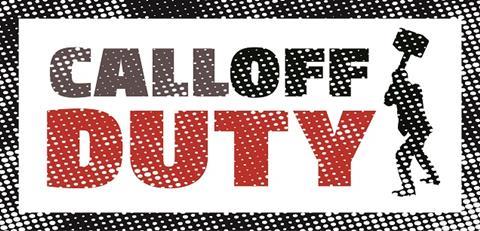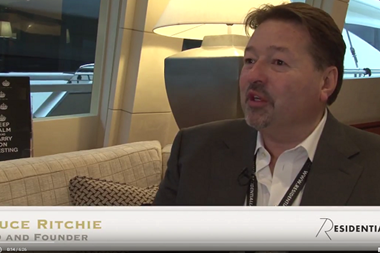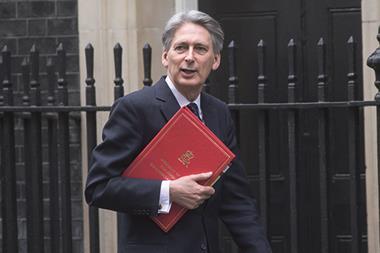It’s good to see Property Week organising its Call Off Duty campaign to get chancellor Philip Hammond to understand just how destructive George Osborne’s changes to stamp duty land tax (SDLT) have been.

Estimates that receipts are down by as much as £10bn should surely persuade a man who made much of his own fortune in property that a change is long overdue. I can only assume he already knows this but is holding back the announcement until his first budget proper in the spring. Let’s hope so.
The current system fails the market on so many levels. It has immobilised middle-class Londoners. Paying 12% on anything over £1.5m means giving the taxman £153,750 for the privilege of buying a £2m house. Throwing the money down the drain, more like.
It comes out of your equity and it’s gone, worthless to you and of no interest to your lender. At that rate I don’t know why anyone bothers moving - and the fact is that many don’t. Immobility harms labour markets and is particularly damaging among professionals for whom mobility is vital. And this from a government that calls itself Conservative.
The change to buy-to-let stamp duty is called a tax on second homes but is patently about discouraging private buy-to-let on the grounds that this will lower prices and allow first-time buyers to get into the market.
It might be excusable if there were the slightest evidence that this was happening, but it patently isn’t, and along the way that and the abolition of higher-rate tax relief on buy-to-let mortgages has simply wiped out profits on (mostly older) peoples’ savings.
I put this to former chancellor Nigel Lawson during my conversation with him at this year’s RESI Conference. During his six years as chancellor, there were two rates of SDLT - 0% and 1%. He thought the latter too high.
Political convulsions
Meanwhile, political convulsions erupt all around us, particularly in the EU. The Italian prime minister now looks likely to lose his referendum, which will probably cause several large Italian banks to fail. In France, François Fillon surprised most commentators by easily seeing off former president Sarkozy and former prime minister Alain Juppé in the battle to be the Parti Republicain candidate in this year’s presidential election.
But the question is whether now, given Trump and the Brexit vote, he can beat the Front Nationale’s Marine Le Pen. If she wins, the euro and the EU itself are effectively finished. Angela Merkel has confirmed that she will lead her party into this year’s German elections, but the worry is that the coalition she hopes to lead will be much less stable than its predecessor.
It is an irony that those who want to see us remain in the European Single Market may yet see that possibility disappear before our eyes.

There was a time when this might have appeared an utterly impossible outcome, but the sense that governments all over the world have failed, that the rich have got richer while those at the other end of the scale have seen no improvements in living standards, whether the government in office has been of the left or right, is deeply troubling. It takes its form in huge electoral upsets of which Trump and Brexit are but two.
And the trouble is, nobody knows how to solve the problem. Socialism has never worked; unbridled capitalism is arguably what got us into this mess, but as May tries hard to help the JAMs - those who are ‘just about managing’ - she is finding few coherent answers from left or right.
We should wish her well. President-elect Trump articulated this frustration and real anger for millions of Americans. The real risk is that in four years’ time they will see him as just another lying rich establishment politician. What might come next, I wonder?
Steve Norris is chairman of Soho Estates and BNP Paribas Real Estate






























No comments yet